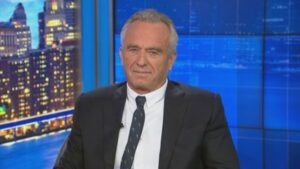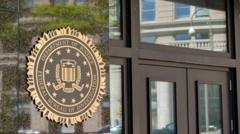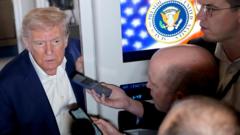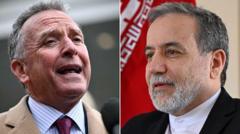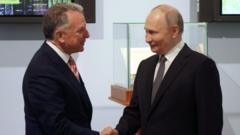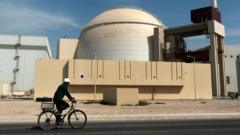Iran's opportunity for renewed negotiations hinges on the US ensuring no military action is considered.
**Iran Open to Nuclear Negotiations with Conditions Set for the US**
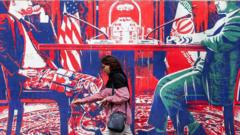
**Iran Open to Nuclear Negotiations with Conditions Set for the US**
Iran's Foreign Minister signals readiness for talks contingent on US military threats cessation.
In a significant diplomatic move, Iran has expressed its willingness to engage in indirect negotiations with the United States regarding its nuclear program. Foreign Minister Abbas Araghchi stated that Iran is prepared to meet "with a view to seal a deal," but emphasized that any chance of agreement depends on US President Donald Trump renouncing a "military option." This statement reflects Iran's steadfast refusal to accept pressure or coercion in negotiations.
The upcoming talks scheduled for Saturday in Oman are shrouded in complexities as they will be indirect—a point that contradicts Trump's earlier assertion of direct communication. Following the US's withdrawal from the 2015 nuclear deal during his first term, Trump has adopted a hardline stance, warning Iran of dire consequences if diplomatic efforts are unsuccessful. His administration has characterized its approach as a "maximum pressure" campaign aimed at curbing Iran's nuclear ambitions.
Despite expressing a willingness to clarify the peaceful intentions of its nuclear program, Iran has also challenged the sincerity of the US government, stressing the need for assurance that military options will not be on the table. While Araghchi acknowledged possible concerns over Iran's nuclear activities, he maintained that the nation would never seek to develop nuclear weapons, underscoring a commitment to its claims of peaceful nuclear pursuits.
Trump's strategic maneuvering, including sending a letter to Iran's supreme leader through the United Arab Emirates, reflects an ongoing effort to negotiate a deal aimed at preventing Iran from gaining access to nuclear weapons. However, the US has set high expectations for the negotiations, including demands for the complete dismantling of Iran's nuclear infrastructure—a condition that Iranian officials have outright rejected.
The tension surrounding the talks is further heightened by Israel's involvement, with Prime Minister Benjamin Netanyahu supporting a "military option" should diplomatic negotiations falter. This poses a significant risk, as Iran perceives any military threat or intervention as existentially threatening, prompting a strong defensive posture.
As the situation develops, both parties face the critical task of aligning their strategic interests and establishing trust amidst a fraught historical context. The next round of negotiations will test both Iranian resolve and US diplomacy, as the stakes surrounding nuclear capabilities in the region continue to escalate. The world watches closely, given the implications for stability and security in the Middle East.

